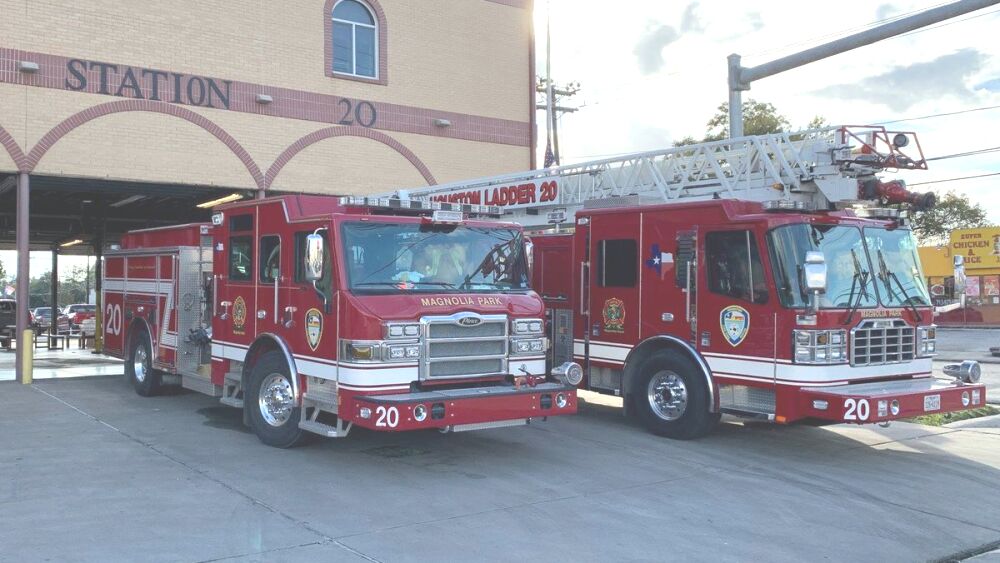Jasper Scherer and Robert Downen
Houston Chronicle
HOUSTON, Texas — Mayor Sylvester Turner told the Houston fire union Monday he would provide it with financial data leaders requested, a sign of progress at a critical point in negotiations between the mayor and union to phase in Proposition B raises for firefighters.
Officials from the Houston Professional Fire Fighters Association have asked Turner to open the city’s books, allowing firefighters to verify that the mayor’s offer to phase in the pay raises over multiple years honors the terms of the charter amendment, which requires the city to pay firefighters the same as police of corresponding rank and seniority.
Turner’s refusal to do so has been a key sticking point preventing a deal, union President Marty Lancton said.
The development comes two days before Houston city council is scheduled to consider a measure to lay off 220 Houston firefighters, which Turner has said is necessary to offset the cost of pay raises if Prop. B is not phased in over multiple years.
Councilman Dwight Boykins said Monday he would use a procedural maneuver to delay a vote on the layoffs if the fire union has not received the city’s underlying financial data by then.
The meeting was the second in four days between Turner and representatives from the fire union. On Friday, Lancton said he would seek union members’ approval of Turner’s offer to phase in raises over three and a half years if the city meets certain conditions.
Turner spokesman Alan Bernstein said the mayor provided information Monday the union had requested last week. The union asked for additional details at Monday’s meeting, he said.
“That information is being gathered and will be provided, as well,” Bernstein said in a statement. “Discussions are ongoing.”
Fire Chief Sam Peña said he was “encouraged” by Monday’s talks, even if they did not produce immediate results.
“Anytime we’re sitting at the table and having a conversation is progress,” he said.
Peña said he was not sure whether Wednesday’s scheduled council vote would be delayed, but the department is moving ahead with implementation of Prop B anyway.
“The process needs to move forward, because the books do need to be balanced by the end of the fiscal year” in June, he said. Among the biggest changes Peña has sought is a switch from a four-shift work schedule for firefighters to three. Currently, firefighters work 20 24-hour shifts every 72 days, with occasional extra shifts for which Peña has said there is a high absentee rate.
The new, three-shift model would give firefighters regular days off. Peña said he was considering that switch even before Prop B’s passage as a way to save money that could be reinvested in fleet upgrades, among other things. Now, he said, it is about maintaining public safety while confronting HFD’s roughly $25 million share of Prop B’s annual costs.
The proposal headed to council on Wednesday shows that most of the staff reductions would come from firefighters, engineers and captains, though Pena said that absent any phase-in agreement, some employees could be demoted instead of having their positions absorbed through attrition.
Lancton and the union have decried the move and said it will negatively impact public safety.
The union’s terms for taking the mayor’s offer to a union vote include a guarantee that no firefighters would be laid off “before, during or after implementation of Proposition B.”
The city on April 4 issued 60-day layoff notices to 67 fire cadets. The administration also sent pink slips last Friday to 47 municipal employees across four departments: Administration and Regulatory Affairs, Health, Library and Parks and Recreation.
Union officials also said any phase-in agreement would have to be ratified through a collective bargaining agreement, and that the Turner administration must provide firefighters with “complete access to city financial and budget information” and implement “complete parity,” including base and incentive pay, with Houston police officers.
Turner would also need to agree not to reduce fire and EMS services, Lancton said.
In a letter sent to Lancton Monday, Turner wrote that he is committed to working out a collective bargaining agreement.
“That will require the parties sitting down to negotiate terms that are not covered by Prop B,” the mayor wrote. “At the same time, the city must move forward with balancing its budget before the end of June. If the parties can reach an agreement on Prop B, it can subsequently be included in a future collective bargaining agreement.”
Turner added that he considers Prop B “very vague and ambiguous on parity.”
“Having said that,” Turner continued, “the city looks to the requirements a police officer must meet to attain a certain position and pay and applies the same requirements to a firefighter in the same or similar position.”
Other departments across the nation have faced similar dilemmas, according to Mike McEvoy, an expert on emergency management services.
McEvoy said Monday that there is a negligible effect on public safety when departments switch from three to four shifts, the latter of which he described as a luxury for better-financed departments.
Lancton, meanwhile, has pointed to a city-commissioned study that concluded a switch to three shifts could not produce “appreciable cost savings.” Peña has said he disagrees with the report’s conclusion because it lacks evidence, while Turner commonly cites a second report commissioned by the city that recommended a reduction in the number of firefighters.
More worrisome than the shift change, McEvoy said, are any changes in response time for HFD firetrucks.
“Any time you make a reduction there’s going to be a little bit longer response time,” he said.
———
©2019 the Houston Chronicle












